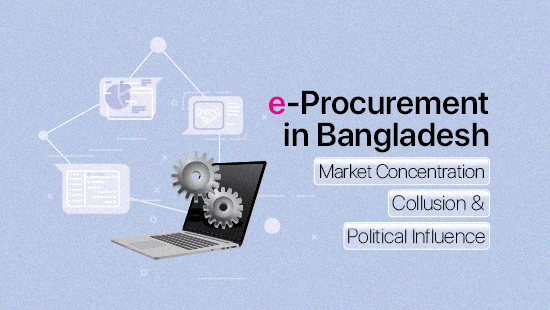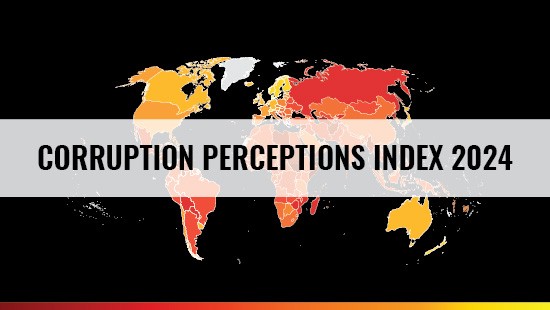Rio+20 Summit - Expected Outcome Document
An Appeal from the South Asian National Chapters of Transparency International to respective delegations to address the governance challenges in climate finance
Dhaka, New Delhi, Mate, Kathmandu, Islamabad, Colombo, May 15, 20112. ln view of the forthcoming Rio+20 Summit due to commence on June 22,2Ot2, we, the chapters of Transparency lnternational in South Asia - Bangladesh, lndia, Maldives, Nepal, Pakistan and Sri Lanka - present our deepest compliments and regards to request our respective delegations to consider the following key messages to be reflected in the expected outcome document:
Effective mitigation in the Kyoto plus agenda: Climate change and green economy objectives require both governments and companies to ensure optimum transparency and integrity in reporting greenhouse gas emissions particularly when that reporting results in revenues such as through carbon market credits.
Climate finance and sustainable development:Allocations, disbursements and use of public money for climate change must be transparent and accountable to citizens in developing and developed countries alike. The monitoring, reporting and evaluation of climate finance is required to ensure goals and objectives of the finance are achieved. Sufficient public oversight is necessary to ensure this.
Safeguarding the Green Climate Fund against corruption:To ensure true environmental, social and economic benefits globally, the green economy needs to be grounded in principles of transparency, accountability, and integrity. Public climate finance mechanisms need to incorporate these principles at both policy and operational levels. This is especially important in the context of the UN’s nascent Green Climate Fund (GCF), which is likely to serve as a model for climate financing in existing and future modalities.
Fiduciary principles and standards: Robust, comprehensive and clear fiduciary principles and standards should be agreed upon and applied fairly to all global, regional, national or local actors responsible for or otherwise significantly involved in the allocations, delivery, finance and/or use of public money for climate change related actions. Governments and financial institutions – commercial and public – need to ensure optimum due diligence fiduciary standards compliance. Mechanisms and procedures need to be in place to monitor and evaluate the performance of public climate finance fiduciaries.
Sustainable development under the CDM: Clean Development Mechanism stakeholders, in particular project host country governments and affected communities, need to ensure project contributions to sustainable development through pre project‐approval consultations and transparency, regular monitoring and evaluation and appropriate accountability mechanisms.
Conservation of forests and biodiversity: Accountable policy frameworks and market instruments that effectively slow, halt and reverse deforestation and forest degradation, promote the sustainable use and management of forests, as well as their conservation and restoration, and guarantee the highest standards of environmental, governance and social safeguards to preserve of all ecosystems especially those recognized as Ramsar Sites, UNESCO heritage sites e.g Sundarbans.
Determining responsibility, liability and penalties:Clear, unambiguous chains of accountability of all persons and entities responsible for public climate finance decisions, disbursements and uses must be determined. Legal, administrative or other policies, procedures and mechanisms must be in place to ensure due processes to determine accountability or liability and respective penalties and/or punishments in cases of corruption and fraud.
Public procurement and contracting:Green economy public procurement and contracting must ensure transparency, accountability and integrity to ensure competitive bid, fair contract awards, and values for money, quality results and overall increased contributions to sustainable development.
Citizen and civil society engagement: Public participation and consultation on issues related to climate/green governance, finance and sustainable development should be supported and enhanced. Citizens and civil society organizations should be charged with monitoring and evaluating climate change programs and projects at various levels. These processes should be mandatory and formalized.
Anti-corruption safeguards in public and private investment:Anti‐corruption safeguards need to be adopted, implemented, monitored and enforced by institutions (public and private, commercial and non‐commercial) and organization responsible for the delivery and use of public climate finance. For financing institutions, this includes multilateral, bilateral and national institutions as well as financial intermediaries.
Stopping illegal timber logging:Legislation criminalizes not only the import of illegally sourced timber, but also products whose legality or provenance is unproven or suspect. It should address the importing of timber laundered through third county diversions. Traders caught violating the law are punished and blacklisted. Practical enforcement measures would include bilateral and regional agreements to curb illegal trading, information and intelligence sharing.
Undoubtedly, governance could unravel hard-won progress towards achieving poverty alleviation and green economy growth. As such, Governance risks must be explicitly addressed as part of any effective and sustainable developmental framework. Poor governance undermines achievements made on poverty alleviation and green economic growth, and is seen as stalling progress on the sustainable economic growth. We believe that significant levels of democratic practices, transparency, accountability and integrity from local to international levels are empirically correlated with quality of education, better access to health and clean water. Governance into both policy and practice is a guiding principle.
As our countries are among the most vulnerable to climate change and as we are faced with immense challenges to sustainable development as well as good governance, we believe that as part of the Rio+20 agreement, the agreement must explicitly address how to strengthen governance at all levels (local, national and global); enshrine mechanisms to promote democratic ownership, transparency and accountability; and ensure ethical conduct in both policy and practice on the part of all stakeholders (governments, businesses and civil society).
For these reasons, Transparency International, as a member of the Beyond 2015 campaign, supports the call for the outcome document to include:
Immediate release of climate fund pledged by developed countries in predictable manners
mechanisms for citizens to hold national governments to account in real time for progress on commitments made;
a governmental peer review process which includes civil society
accountability between governments and donors.
special dimensions of physically challenged, women and children’s vulnerability in climate finance policy are incorporated and adopted measures to establish equity
All these issues are also critical for climate finance. When free from poor governance and integrity, climate finance has the potential to play a major role in the financing of sustainable development. Effective adaptation and mitigation expenditure necessitate in-built safeguards against risk, including mutual transparency across financialflows, independent oversight, clear chains of accountability, and legal and administrative mechanisms to determine liability and respective penalties in cases of fraud or abuse.
Given the potential volumes involved and the relatively untested nature of its institutional framework, climate finance must be treated as a new and emerging challenge, distinct from development aid. The Rio+20 outcome document is missing this link.
We will look forward to eagerly to ensure that Rio+20 will be stumbling block to reduce the exponential increase of GHG emission to save the planet and will be truly sustainable with the inclusion of above issues.
Signatories:
lftekhar Zaman, Executive Director, Transparehcy lnternational Bangladesh
Anupama Jha, Executive Director, Transparency lnternationaI lndia
llham Mohamed, Execl,rtive Director, Transparency Maldives
Ashish Thapa, Transparency International Nepal
Saad Rashid, Executive Director, Transparency lnternational Pakistan
M. D. A. Harold, Chairman, Tl Sri Lanka







